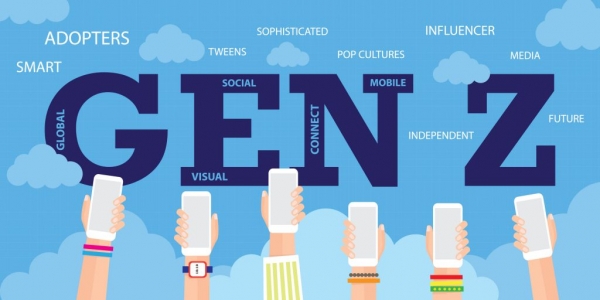
"Millennial Generation (Gen Y)," entered their late 20s to 30s, becoming the main consumer of Korea. Recently, however, Generation Z (Gen Z) has been drawing attention for having a huge impact on the consumer market. Gen Z refers to a population group that follows the Gen Y. Demographers generally classify the generation born in the mid-1990s to the mid-2000s as Gen Z. Unlike Gen Y, who grew up in a mixed analog and digital culture, Gen Z grew up exposed to the digital environment from an early age and are called "digital natives." Since most of the undergraduate students at POSTECH belong to Gen Z, the characteristics of Gen Z are similar to those of POSTECH students.
Gen Y grew up with the parents of the baby boomers in a growing economy. On the other hand, Gen Z had to undergo the aftermath of the IMF throughout its childhood with Gen X parents. Unlike the previous generation, who grew up expecting that society would continue to be affluent, Gen Z grew up worrying about future uncertainties and job shortages, which distinguishes them from others. Also, Gen Y grew up at a time when Internet cafes or communities began to gain popularity in earnest. Gen Y expanded the relationship that the previous generation built amid closed networks such as pen pal and PC communications, paving the way for easier communication. Gen Z, however, grew up communicating with people all over the world through various Social Networking Services(SNS) amid the rapid spread of smartphones. This is why Gen Z is more personal and free-spirited in the way they get new information and relate to new people.
Gen Z is not an immediate generation with economic power, but they play a big role in household consumption decision-making based on the information gained through the Internet. With the forecast that they will reach 12% of the world's working population after 2020, the analysis of the consumption propensity of Gen Z is becoming more important for companies. The Hyundai Research Institute cited the advent of the "Gen Z" era as one of the top 10 trends in Korea in 2018. According to a survey of 15600 people worldwide by the IBM Institute for Business Value, Gen Z has an impact on parents buying food and beverages (multiple responses, 77.0%), furniture (76.0%), household goods (73.0%), and travel products (66.0%). “The Gen Z, which is sensitive to the trend and is good at online purchases, already has the say and decision to buy products within the home," said Oh Beom-jun, a senior researcher at Hyundai Research Institute. Rather than accepting information unilaterally delivered by existing media, Gen Z checks information on the Internet and meticulously takes care of the comparison of products on SNS. Rather than following trends unconditionally, they also seek individuality. If they emerge as the main force of the economy, the influence of existing brands will likely weaken. According to the GLOBAL CONSUMER SHOPPING SURVEY 2017 by consulting firm Accenture, Gen Z shoppers have not yet formed strong brand loyalty. Only 16% of U.S Gen Z shoppers purchase at a single store for fashion, while 26% of Gen Y do. Park Jin-su, a senior researcher for Univtomorrow 20s lab, said that understanding Gen Z as a potential value-added consumer and considering approaches to them would be an effective strategy for companies.


